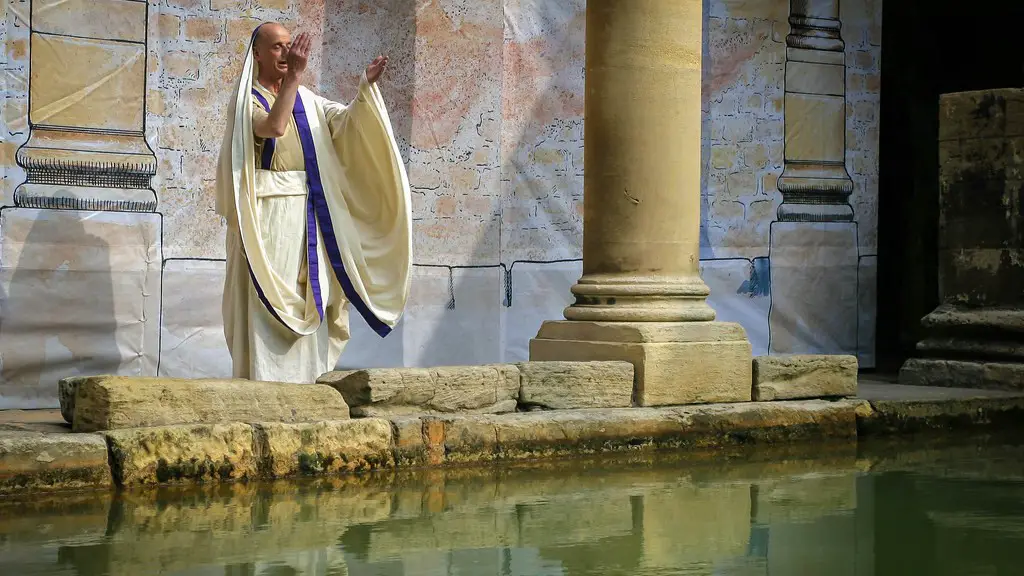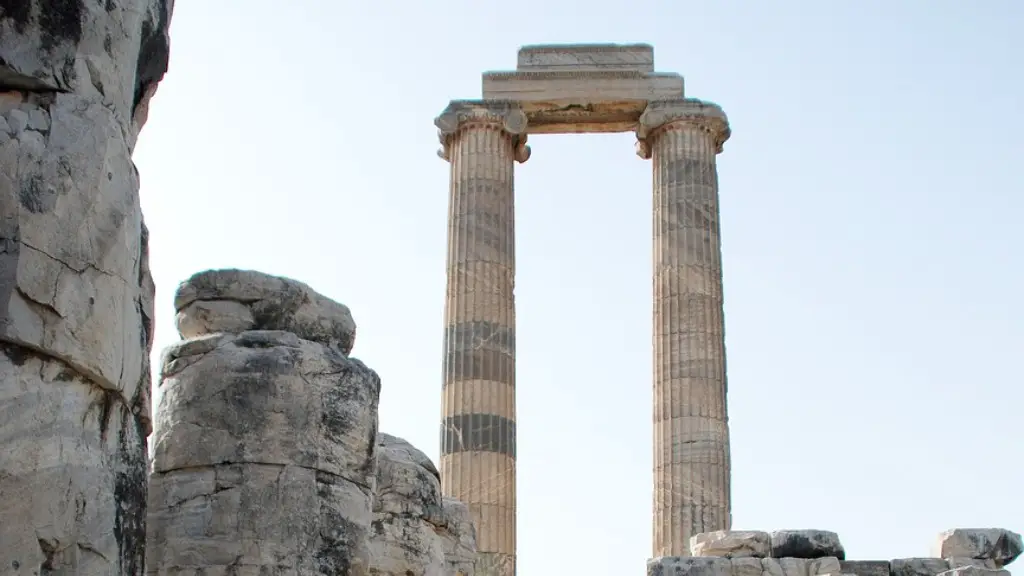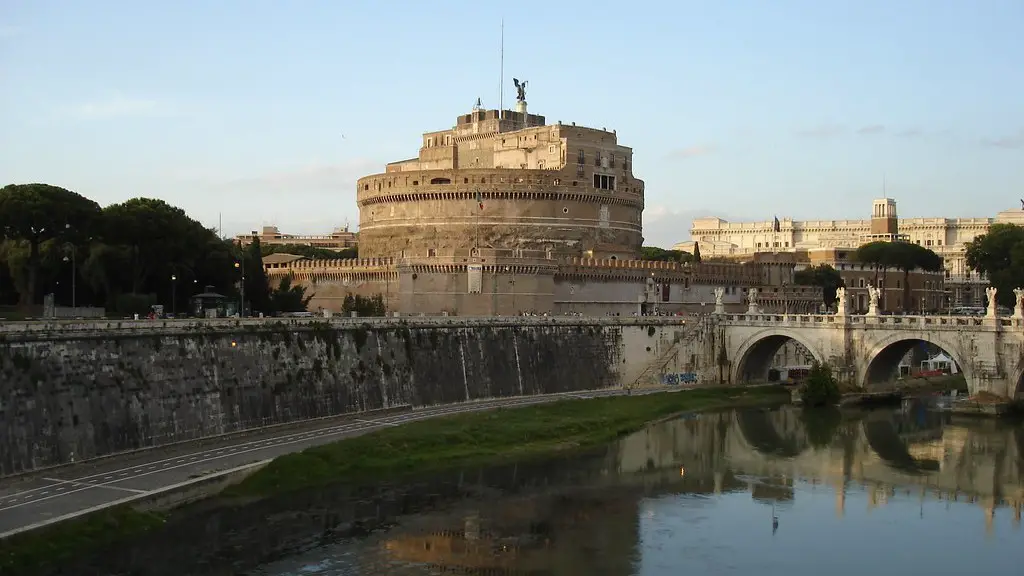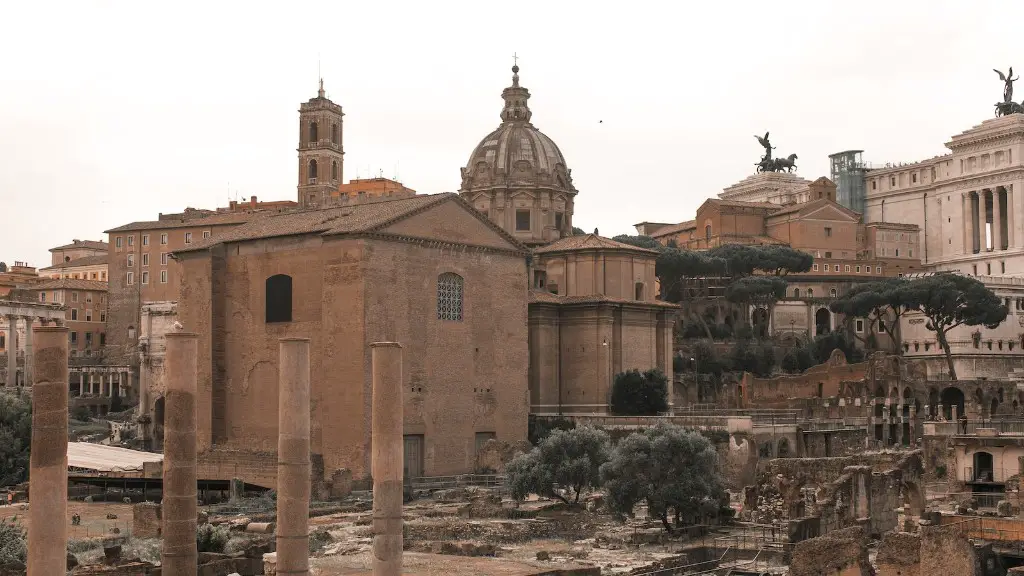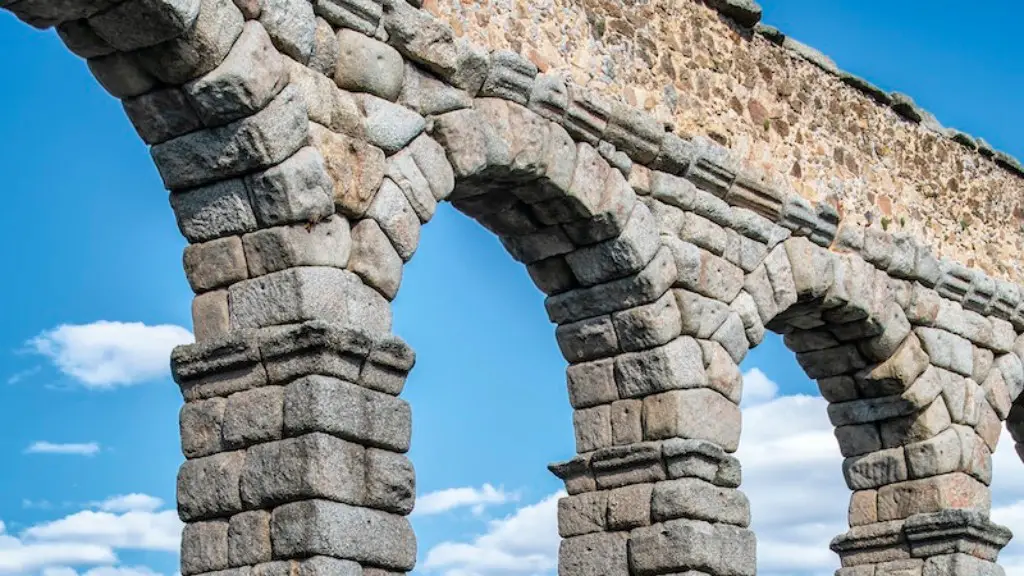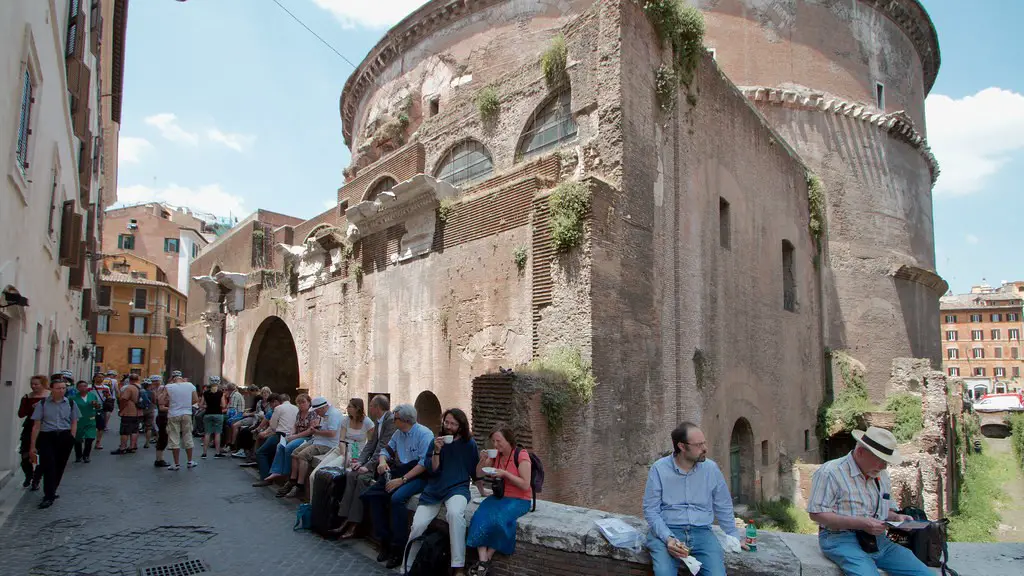Why is Ancient Rome so Important?
Ancient Rome is considered one of the most important civilizations in the history of the world. It was a prosperous, powerful, and influential society that shaped the culture of Europe and much of the modern world. From its rise to its fall, Ancient Rome created a legacy that still resonates today. It has been admired for its grand achievements and influential rise for over 2000 years. In many ways, Ancient Rome is still felt in today’s culture. Here, we will explore why Ancient Rome is an important part of human history.
One of the primary reasons Ancient Rome is so important is due to its impact on modern politics. It is considered to be the foundation of today’s political systems. The beliefs, values, and laws that were formed in Ancient Romeare still seen today. The Roman Republic, one of the most influential forms of governments in Ancient Rome, was a model for other nations and continues to be relevant in 2021. Ancient Rome also established the three-tiered government, which is still used around the world. Ancient Rome’s influence is seen in many democracies, including the United States.
Ancient Rome also played a significant role in the development of religion throughout Europe. Its belief systems, festival dates, and customs made a huge impact on Christianity. In fact, the vast majority of the Christian religion is based on Roman beliefs and traditions. The Roman Catholic Church was the most influential religious force in Europe for centuries, and it was directly based on the ideas of Ancient Rome. Without the influence of Ancient Rome, Europe’s modern-day religions would not exist.
Another major reason why Ancient Rome is so important is due to its impact on modern-day culture. Much of the western world is characterized by Ancient Roman values and beliefs. The culture of Ancient Rome is still visible in our society today through its art, architecture, literature, and language. Without Ancient Rome, our global culture would be vastly different.
Ancient Rome is alsoResponsible for the spread and development of the Latin language. Latin was the lingua franca of the region, and it spread to countries across Europe, and even the New World.n addition to this, the alphabet that is most commonly used today in the Western World is derived from the Latin alphabet. Through Latin, we can trace the linkages of many languages in Europe, such as Spanish, French, Italian, and Portuguese.
Ancient Rome had a far-reaching influence in its time and its influence continues to be felt today. Its achievements in politics, religion, culture, and language are some of the reasons why it is so important in the history of our world. From its rise to its fall, Ancient Rome was one of the great civilizations that shaped the modern world, and it continues to be studied and admired today.
Politics & Government
The political innovations of Ancient Rome are some of the biggest reasons why the civilization is still remembered today. The Roman Republic was a model of government that was adopted by several states in the world today. Even the United States, with its famous constitution, took inspiration from the Roman Republic. Ancient Rome is also responsible for the three-tier government system, where legislative, executive, and judicial branches each have their own power and responsibilities.
The political system of Ancient Rome also created other systems that are still in use today, such as the Senate and thesystem of checks and balances. Ancient Rome was one of the first civilizations to have a completely organized government, with systems of laws that were enforced by a judicial branch. The citizens of Ancient Rome were also granted rights and duties, which is a concept that is still prevalent in today’s society.
Ancient Rome’s influence on modern-day governments cannot be understated. Many countries still use the same governmental system that was implemented by Ancient Rome, over 2000 years ago. From its rise to its fall, Ancient Rome created a legacy that still resonates in our modern-day politics.
Religion
Ancient Rome’s religious systems still have a strong influence today. As one of the most dominant civilizations in its time, Roman values spread across Europe and the New World. Catholicism, or the Catholic Church, which is the most influential religious institution in the world today, was based on the values of Ancient Rome.
Most of the modern-day festivals and holidays in the Christian religion have their roots in Ancient Rome, such as Christmas and Easter. In addition to this, many religious symbols and traditions, such as the crucifix and the pope, have their origins and roots in Ancient Rome. Ancient Roman gods, such as Jupiter and Mars, are still worshiped in modern-day religions.
Without Ancient Rome, Europe’s modern-day religions would not exist. The influence of Ancient Rome on Christianity and other religions in Europe is hard to ignore. Its values and beliefs have been incredibly influential to the development of religion across the world.
Culture
The culture and values of Ancient Rome has been hugely influential in the modern world. As one of the most powerful civilizations in history, Ancient Rome is still felt in today’s culture. Its art, architecture, literature, and language are all a tribute to Ancient Rome’s legacy. Across Europe, there are countless monuments and relics that are direct reminders of the Roman Empire.
The influence of Ancient Rome is also seen in many cultures, from food and fashion to language. Latin, which is the language of the Roman Empire, is still used in some European countries today, such as Italy and Spain. In addition to this, many words in the English language have Latin origins, such as “album” and “bureaucracy”.
Without Ancient Rome, the world today would be vastly different. Its culture and values have been incorporated into the everyday lives of many Europeans, and still remain in our day-to-day culture.
Infrastructure
The infrastructure of Ancient Rome is another important factor when considering its significance in world history. The technology and engineering achievements of Ancient Rome were incredibly impressive, even by today’s standards. The city of Rome was known for its grand architecture and efficient infrastructure.
The city of Rome was home to many of the world’s most advanced sewage systems and roads. It was also home to one of the world’s first aqueduct systems. In addition to this, the Roman Empire was one of the first civilizations to extensively use concrete in construction, which is still widely used today. Ancient Roman infrastructure was a major achievement and is still relevant in the modern world.
The influence of Ancient Rome on engineering and construction is undeniable. Its infrastructure was advanced for its time, and even today, its architecture and engineering are still used in many parts of Europe and the world.
Military Achievements & Strategies
The military might of Ancient Rome was one of the most impressive aspects of the civilization. It was a powerful, influential force that made a lasting impact on Europe and the world. Its military strategies were revolutionary, and its achievements in warfare were unmatched.
The skills of Ancient Roman military leaders, such as Julius Caesar and Hannibal, are still studied today by promising military officers. Ancient Roman tactics, such as the phalanx formation, are still used in modern warfare. The military conquests of Ancient Rome shaped the world as we know it, and its influence can still be felt today.
The military achievements of Ancient Rome are some of its most important contributions to history. Without the military leadership and strategies implemented by Ancient Rome, Europe could have been a much different place. The impact of the Roman military is still felt today.
